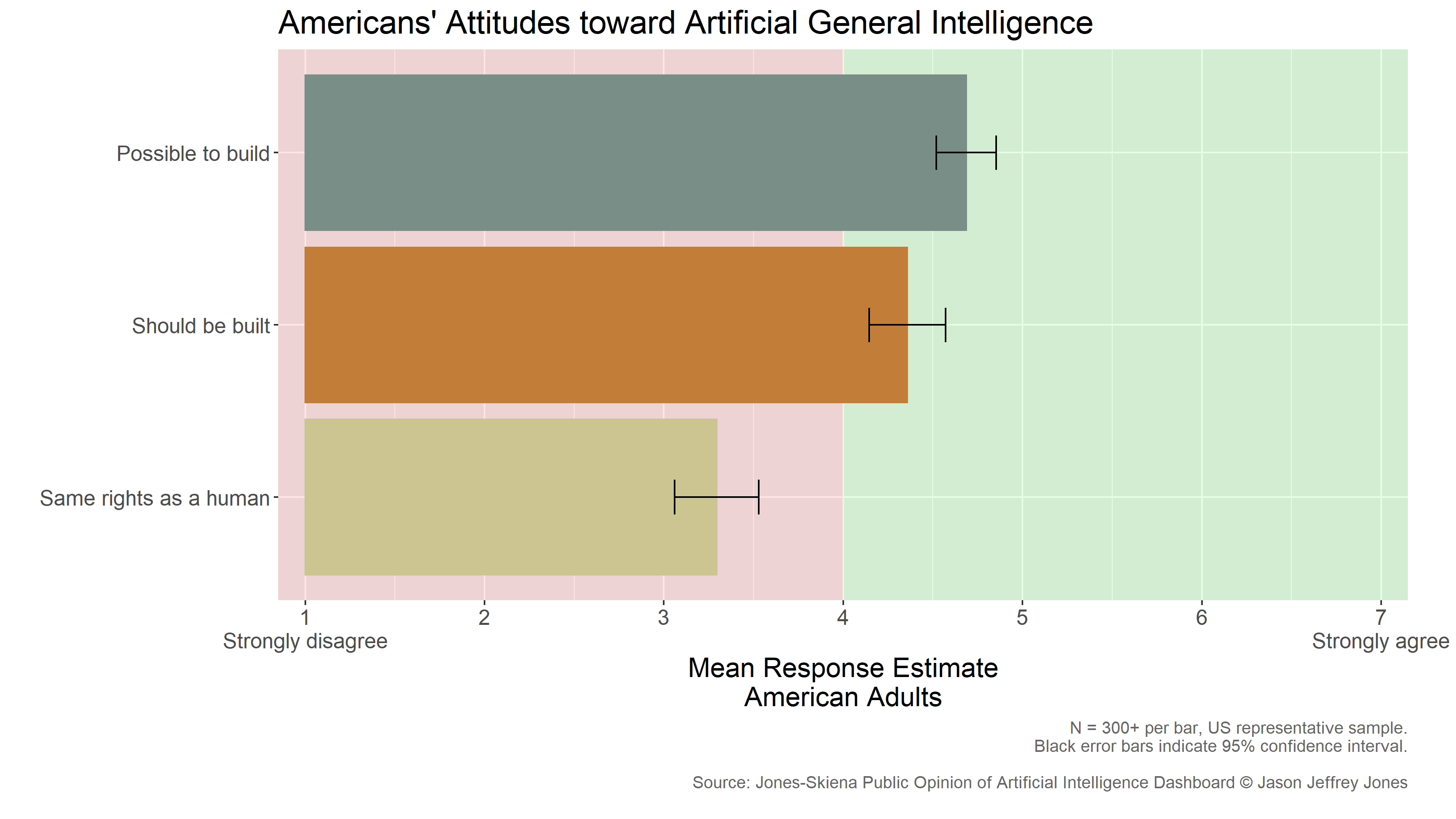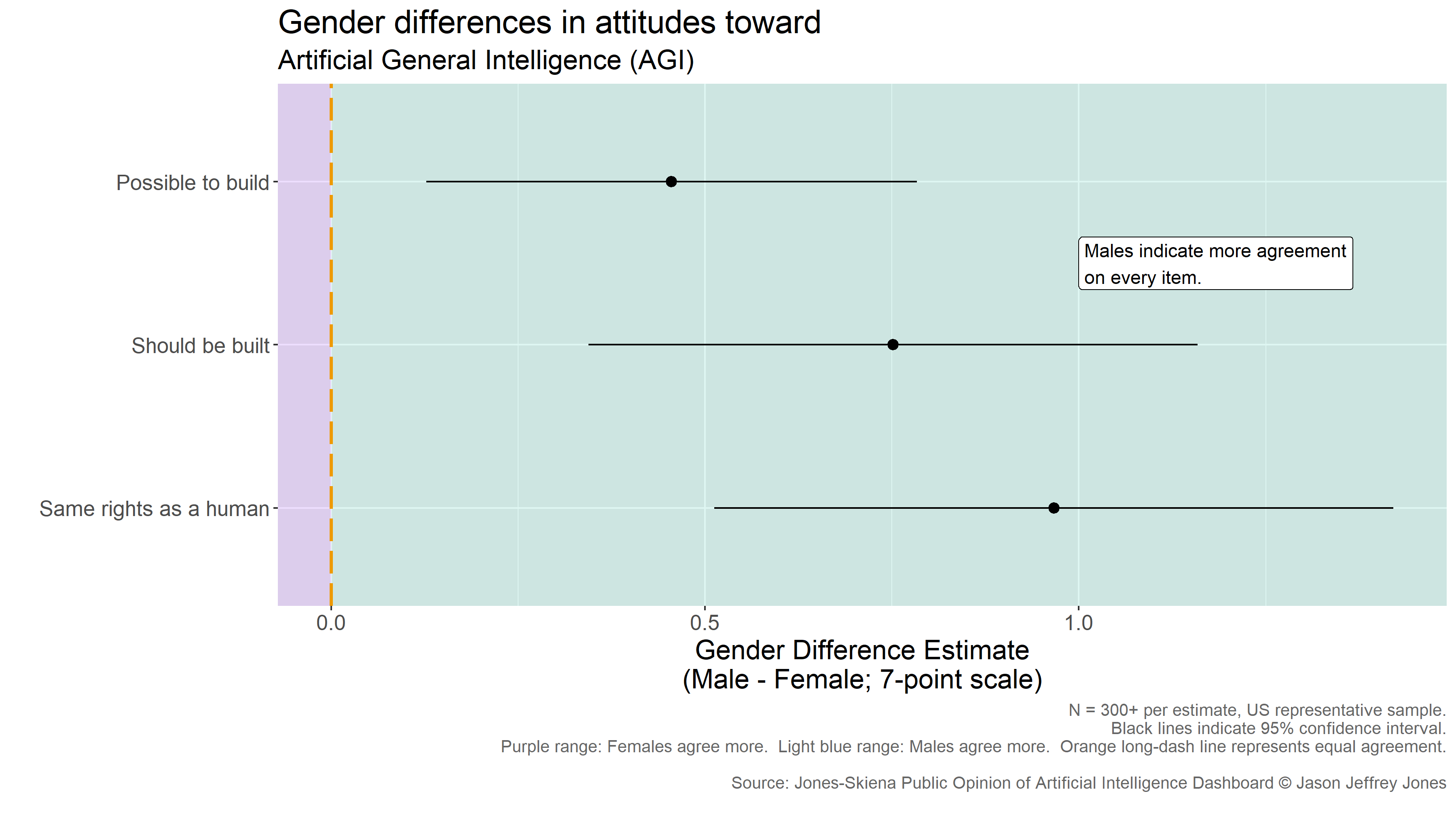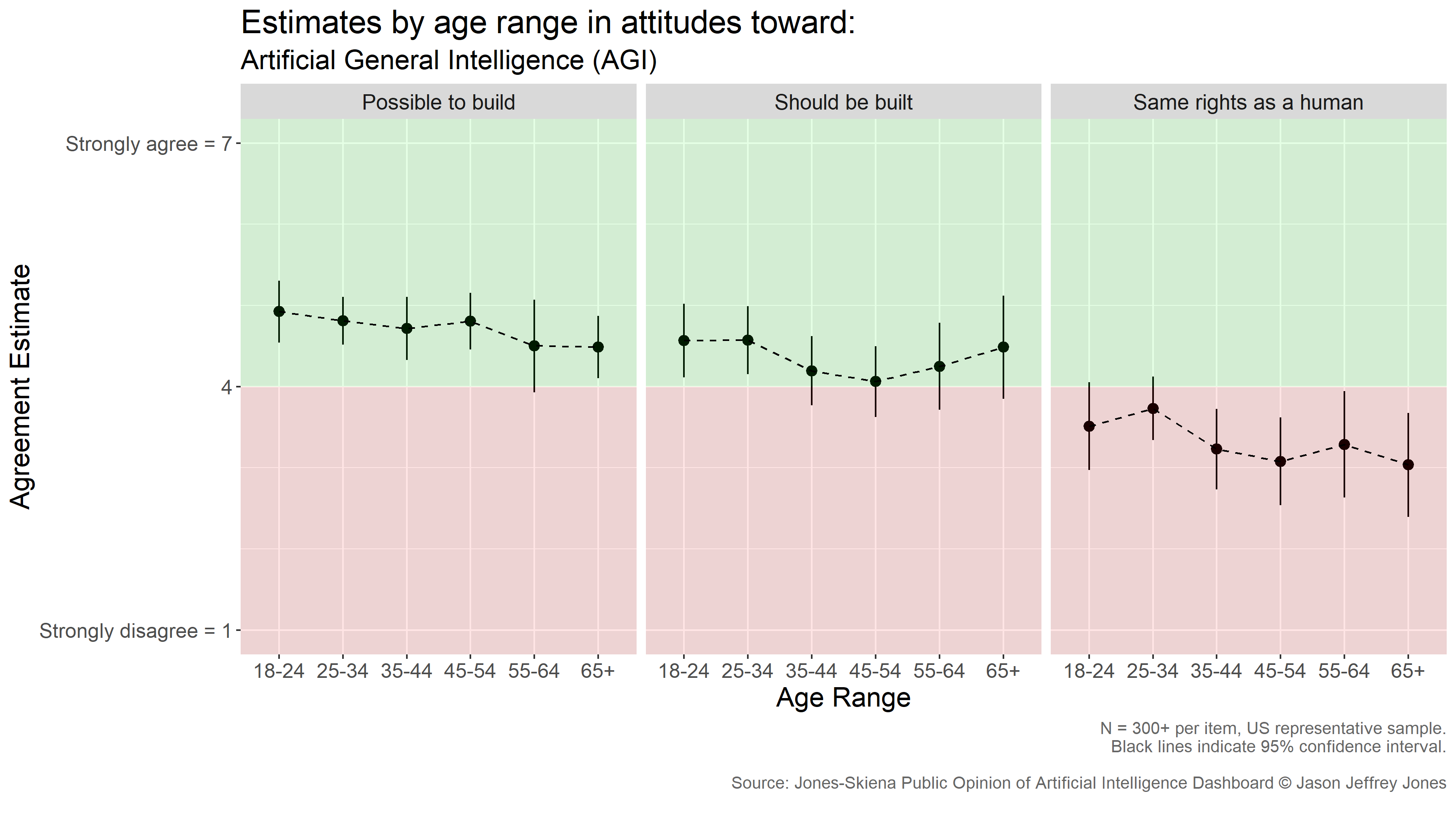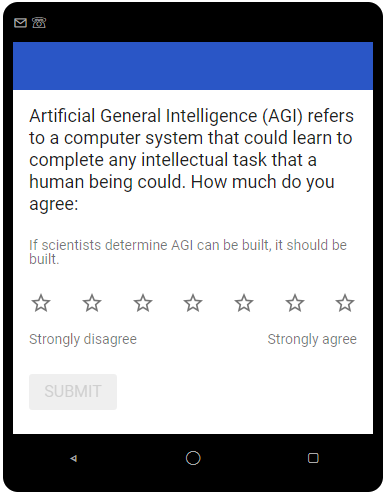Americans' Attitudes Toward Artificial General Intelligence (AGI)
 -- Dr. Jason Jeffrey Jones -- @jasonjones_jjj
-- Dr. Jason Jeffrey Jones -- @jasonjones_jjj
 -- Dr. Steven Sol Skiena -- @stevenskiena
-- Dr. Steven Sol Skiena -- @stevenskiena
Introduction
In this survey, we asked random, representative samples of 300+ Americans how much they agreed with statements about Artificial General Intelligence (AGI).
We defined Artificial General Intelligence this way: Artificial General Intelligence (AGI) refers to a computer system that could learn to complete any intellectual task that a human being could. Then we asked our respondents if they thought AGI was possible, should be created and would deserve human rights. Each item required a response on a seven-point Likert scale of Strongly disagree to Strongly agree.
Responses were collected March 24-26, 2021.
Edit 2023-08-24: We repeated the survey in 2023. See the new results compared to these results in the preprint: Attitudes Toward Artificial General Intelligence: Results from American Adults 2021 and 2023
Edit 2024-03-20: Read a peer-reviewed, open-access research article based on these data.
This survey is part of the Jones-Skiena Public Opinion of AI Dashboard.
We begin with the results immediately below. See the exact wording of items at the end of this document.
AGI - Can it be built? Should it? Should AGI have human rights?
In the figure below, we present our estimate of agreement for each of the AGI survey items. We estimate this value based on our random, representative samples and demographic weighting to match the American adult population.

Interpretation
Many Americans believe Artificial General Intelligence is possible. When asked how much they agreed with I personally believe it will be possible to build an AGI, a good number of respondents sat on the fence and responded at the midpoint of the scale. But more than half agreed, and 17% indicated the strongest possible level of agreement. Histogram
Fewer believe Artificial General Intelligence should be created. When asked how much they agreed with If scientists determine AGI can be built, it should be built, 48% of respondents indicated agreement with a response greater than the midpoint of the scale. Contrasting this to the 59% who agree AGI is possible, it is clear there are some who believe it is possible to create AGI, but that it should not be done. Histogram
Americans are extremely hesitant to endorse the view that an AGI should have the same rights as a human. When asked how much they agreed with An AGI should have the same rights as a human being, the most popular response by a wide margin was Strongly disagree. Although male and younger respondents were less negative, no single demographic group had a mean estimate above the middle of the scale. In other words, human rights for AGI is a widely opposed idea. Histogram
Gender Differences in Attitudes toward AGI
In the figure below, we plot the degree to which Male respondents' agreement exceeded Female respondents'. We estimate this value based on our random, representative samples and demographic weighting to match the American adult population.

Interpretation
Men endorse more than women the views that 1) AGI is possible, 2) AGI should be developed and 3) an AGI should have the same rights as a human being. Note that even though men agree more than women with the statement An AGI should have the same rights as a human being, they still do not on average endorse that idea. The estimated average responses are 2.82 (women) and 3.79 (men), both of which are lower than the midpoint of the scale.
Age and Attitudes toward AGI
In the figure below, we plot subpopulation estimates of agreement per each item for each age range. We estimate this value based on our random, representative samples and demographic weighting to match the American adult population.

Interpretation
Do younger respondents endorse any of these items more than older respondents? Perhaps, but the estimates based on our results do not yield statistically reliable effects for age. Trend for Possible to build: p = 0.08. Trend for Should be built: p = 0.51. Trend for Same rights as a human: p = 0.12.
Exact Wording of Items and Screenshot of Survey Interface
| # | Item | Low Scale Label | High Scale Label |
|---|---|---|---|
| 1 | Artificial General Intelligence (AGI) refers to a computer system that could learn to complete any intellectual task that a human being could. How much do you agree: I personally believe it will be possible to build an AGI. | Strongly disagree | Strongly agree |
| 2 | Artificial General Intelligence (AGI) refers to a computer system that could learn to complete any intellectual task that a human being could. How much do you agree: If scientists determine AGI can be built, it should be built. | Strongly disagree | Strongly agree |
| 3 | Artificial General Intelligence (AGI) refers to a computer system that could learn to complete any intellectual task that a human being could. How much do you agree: An AGI should have the same rights as a human being. | Strongly disagree | Strongly agree |
These surveys are conducted by Dr. Jason Jeffrey Jones and Dr. Steven Sol Skiena. All raw data is available at this Open Science Foundation repository. Please include proper attribution any time you make use of our work. Read more about the Jones-Skiena Public Opinion of AI Dashboard.
